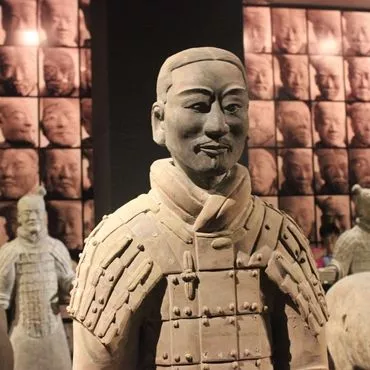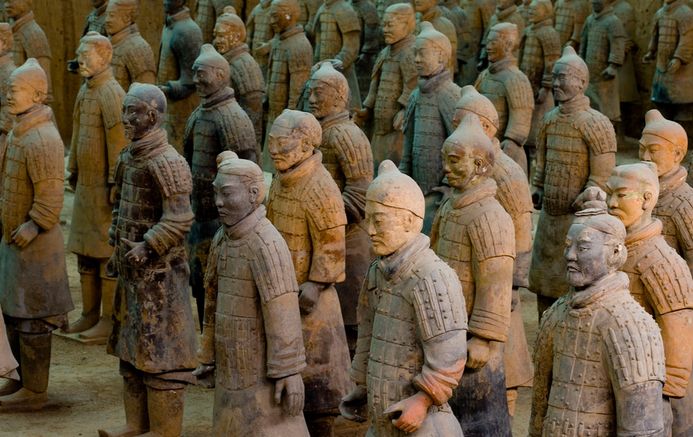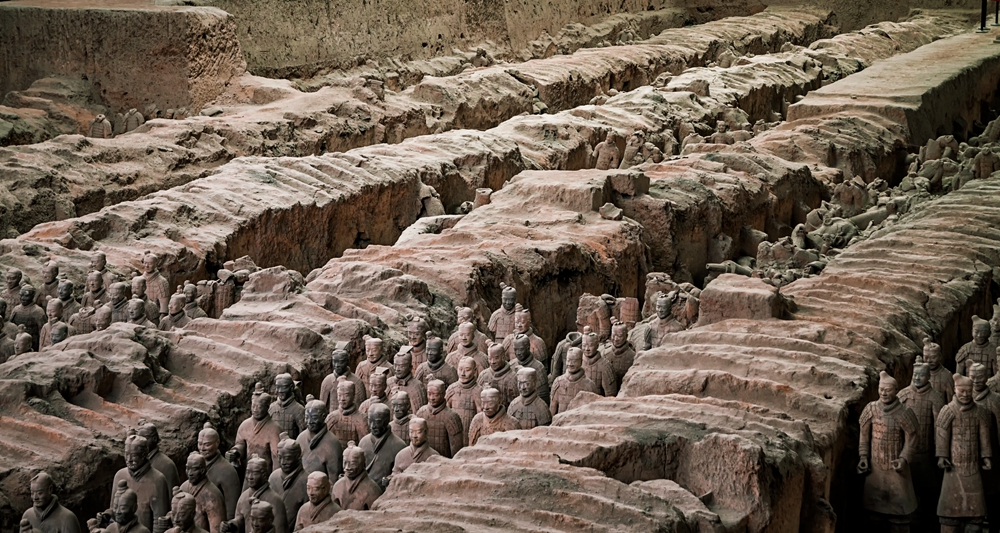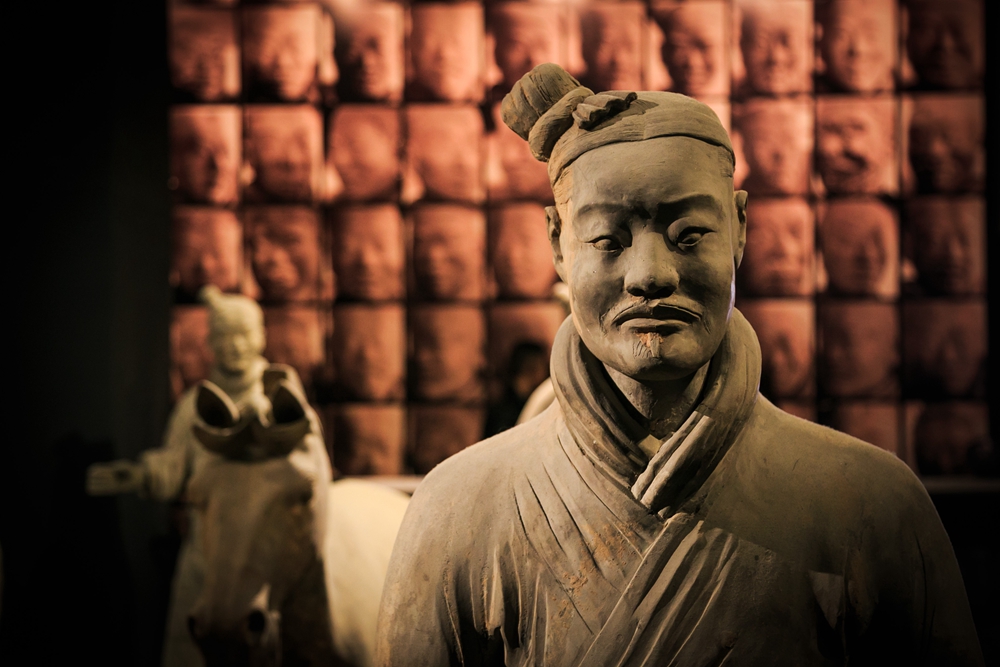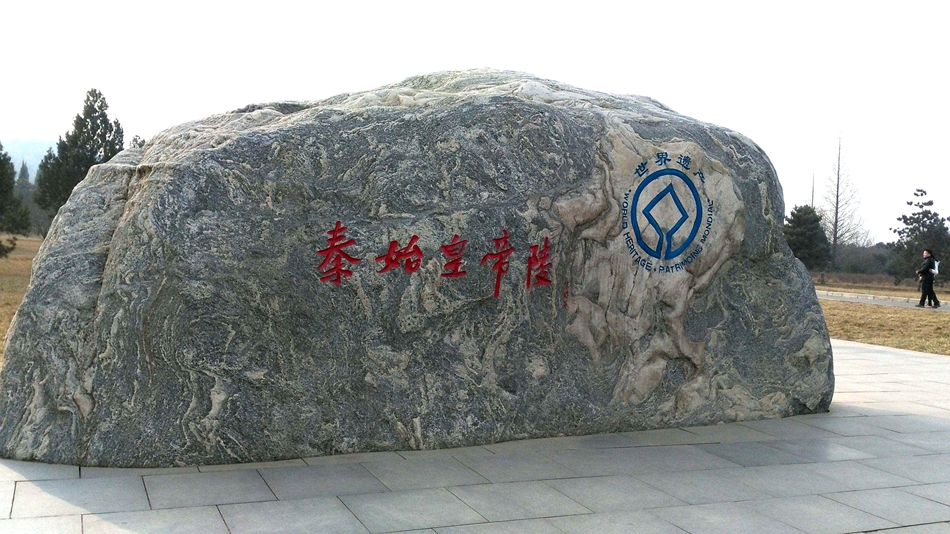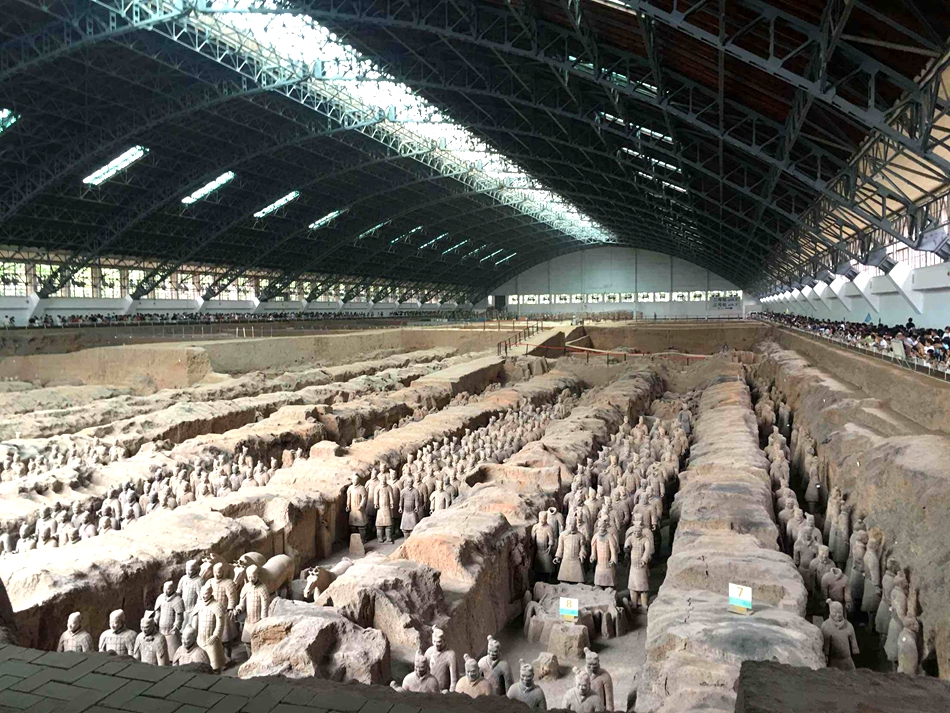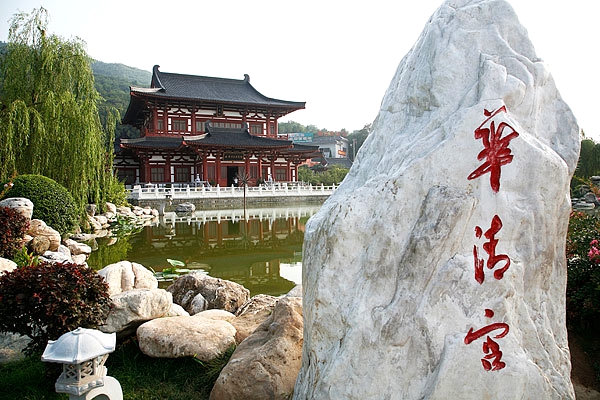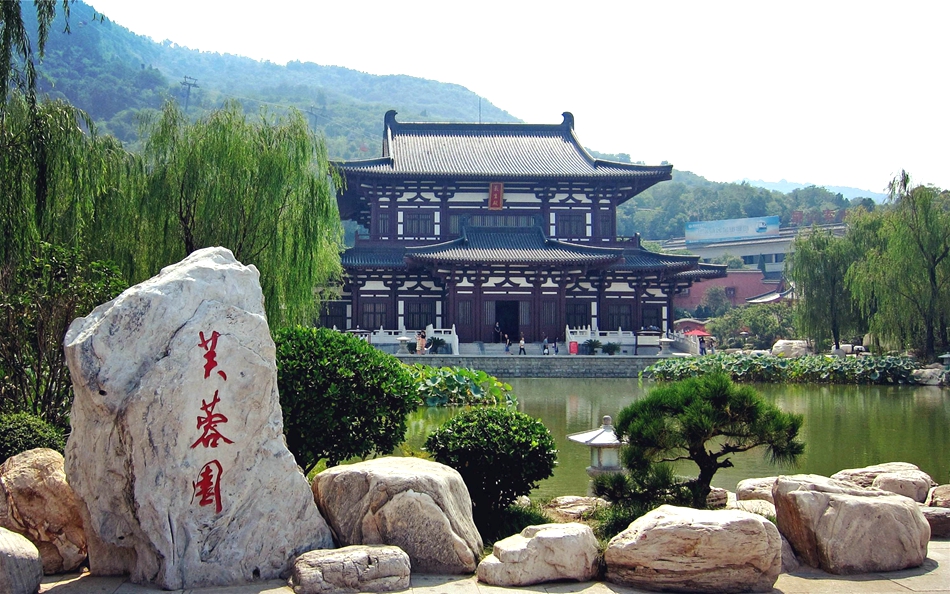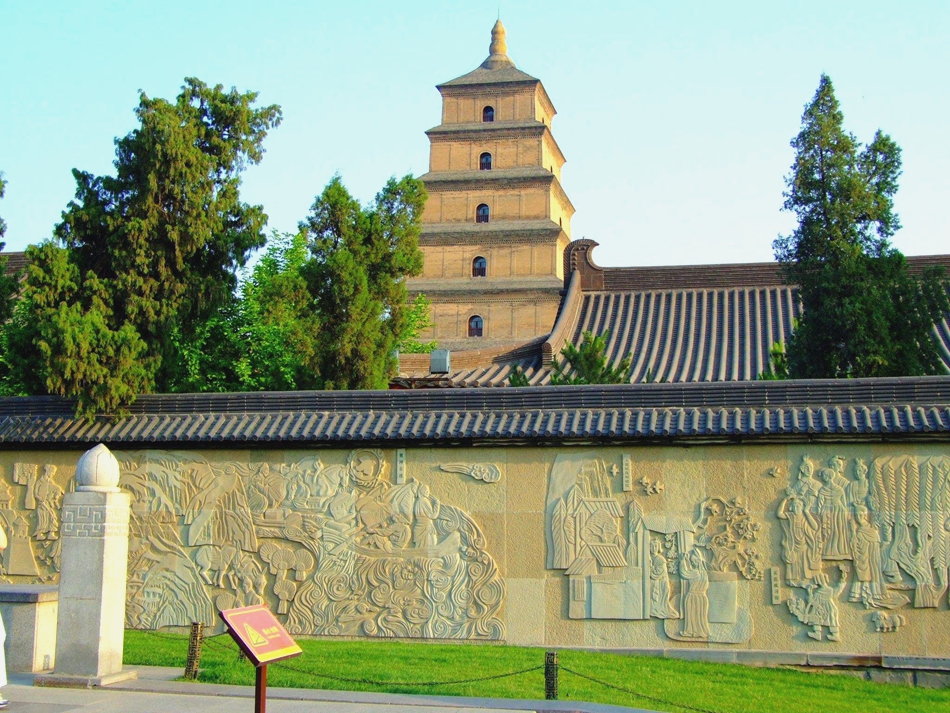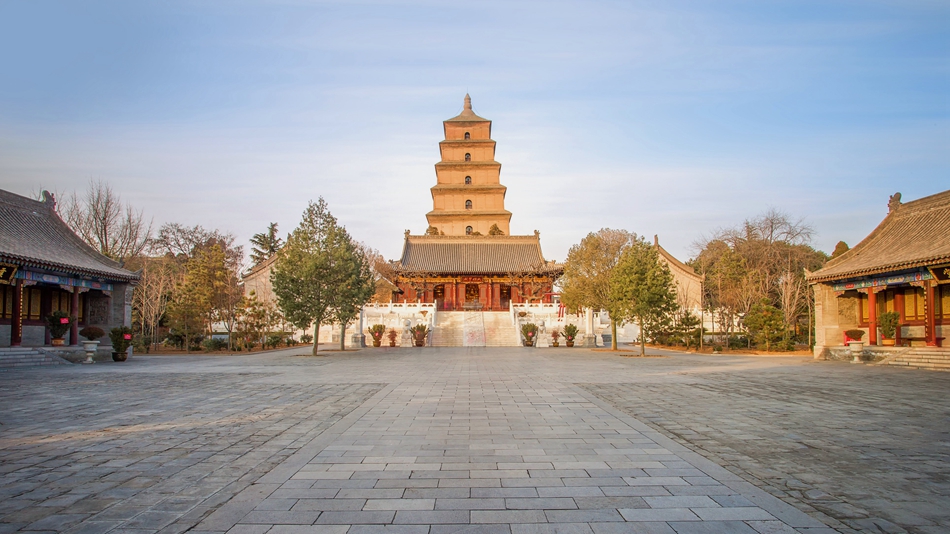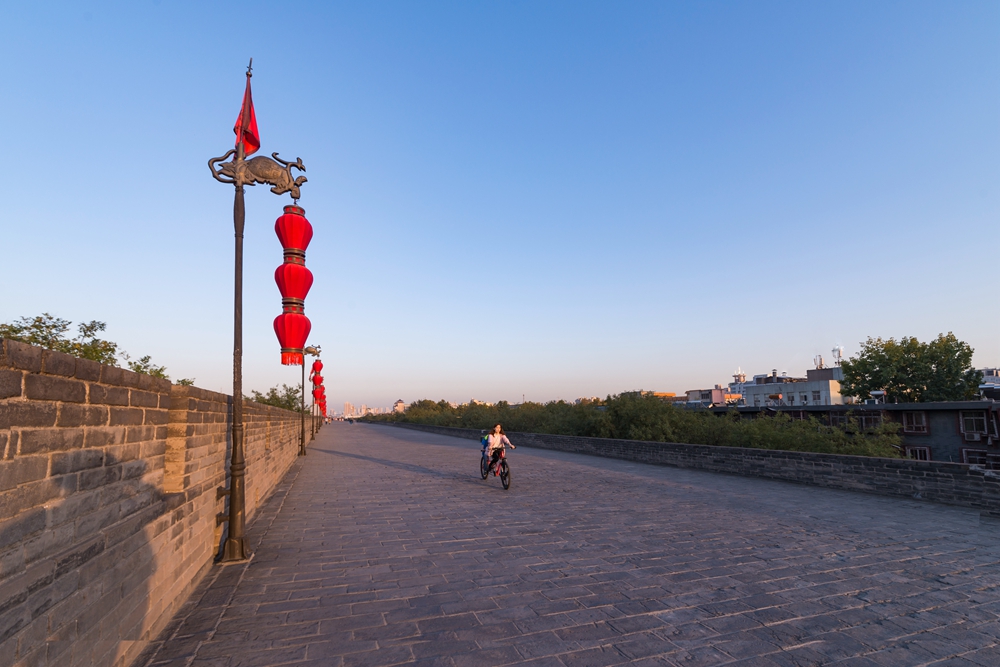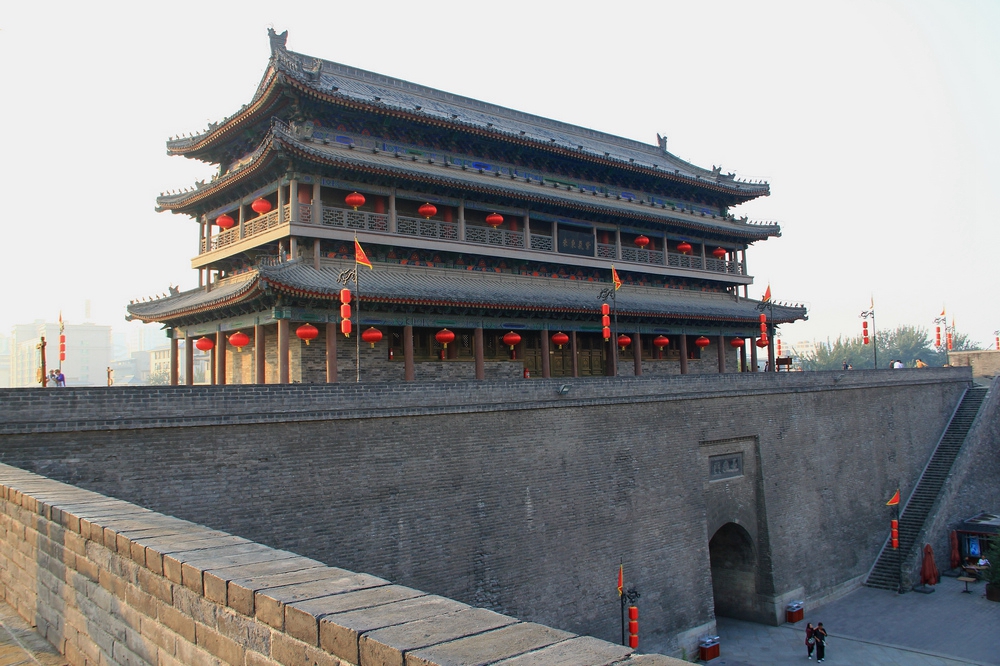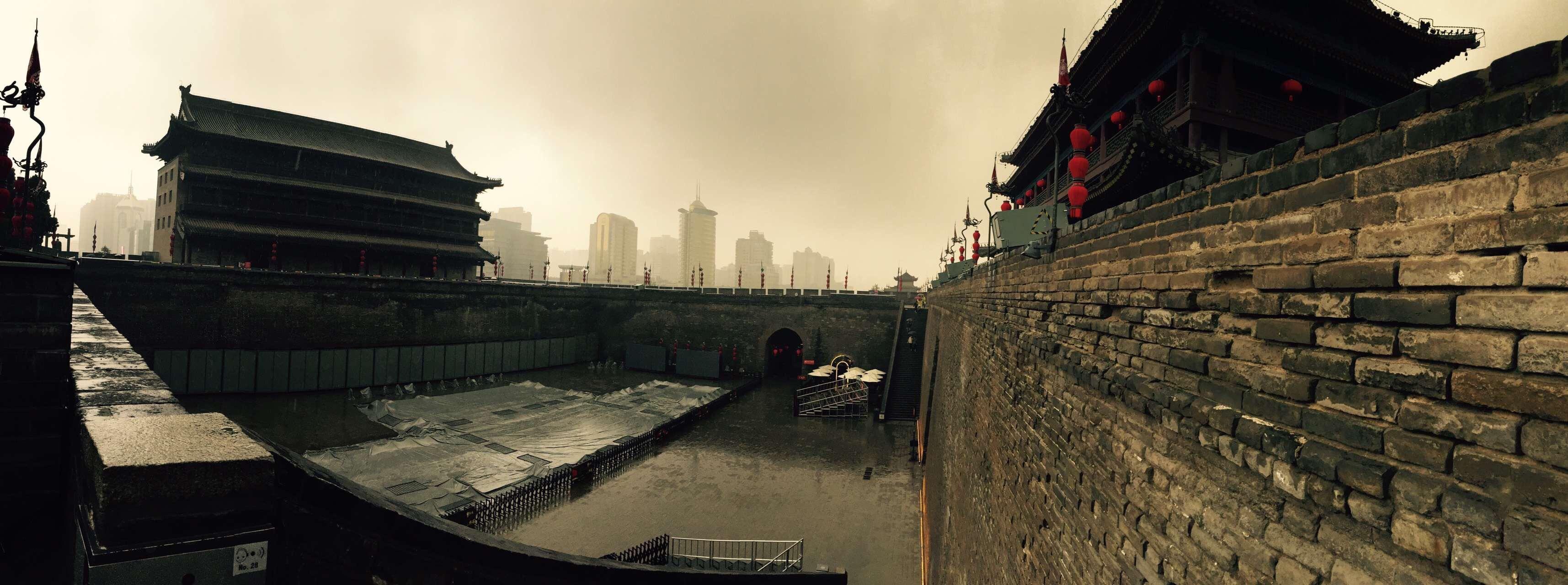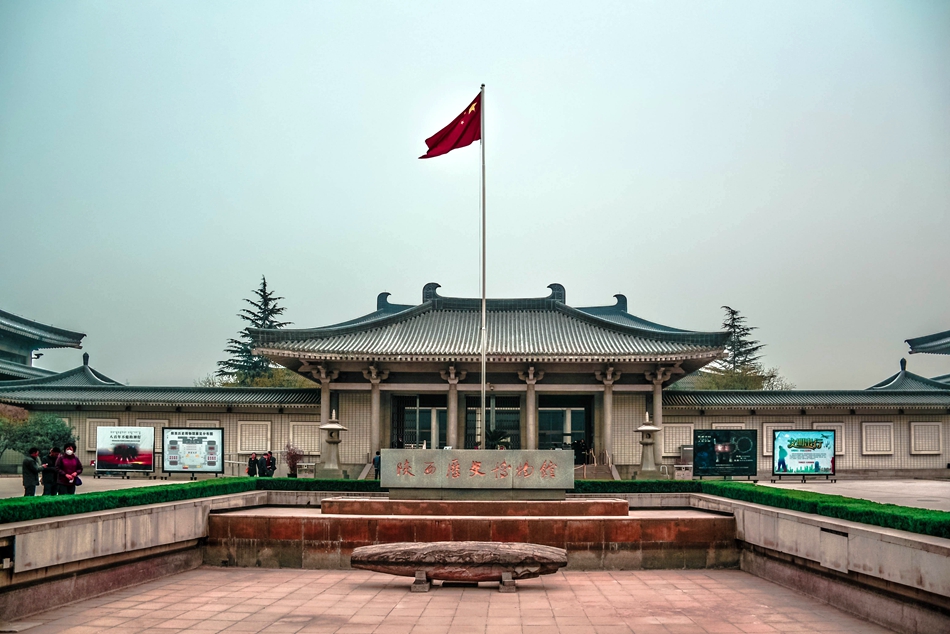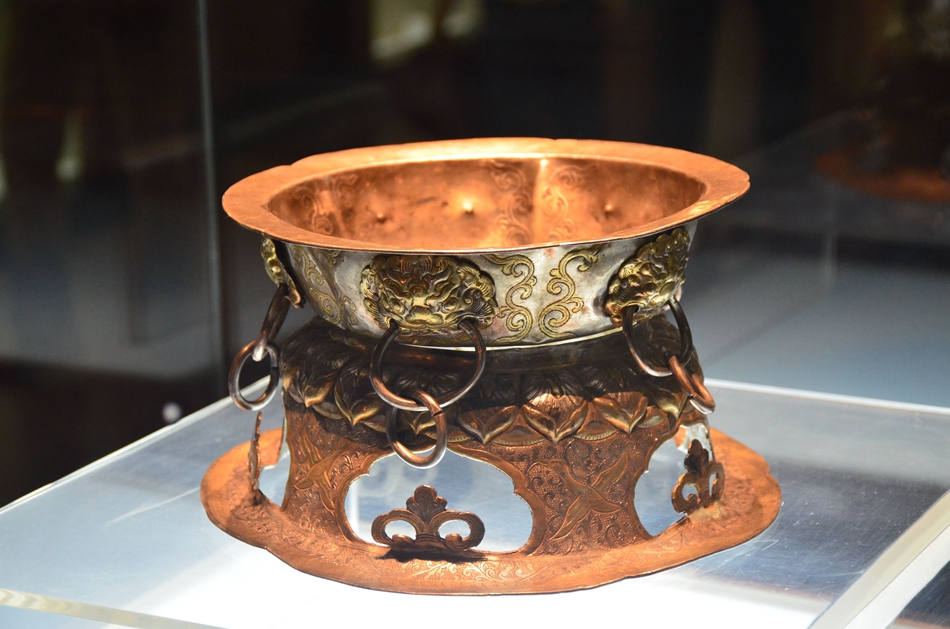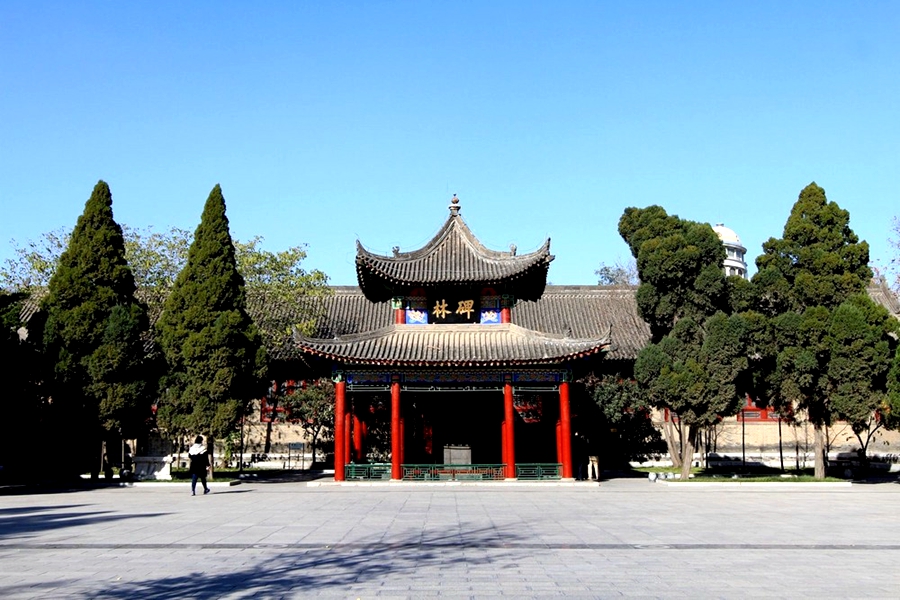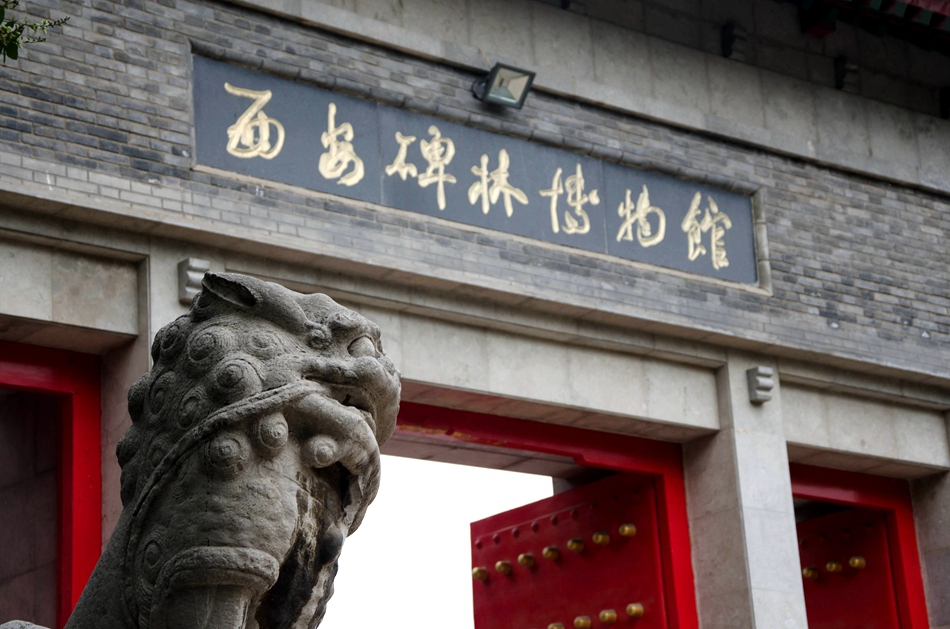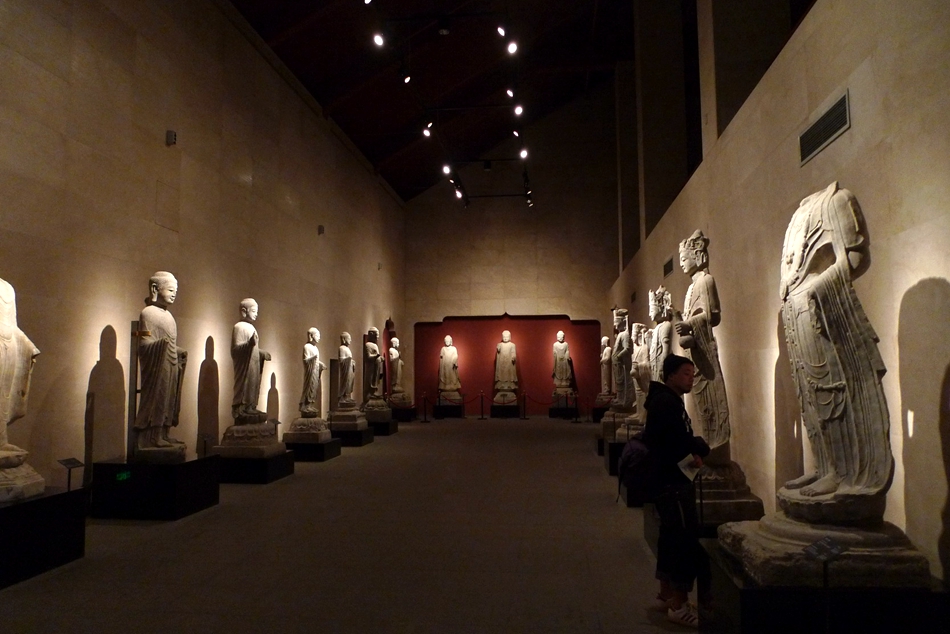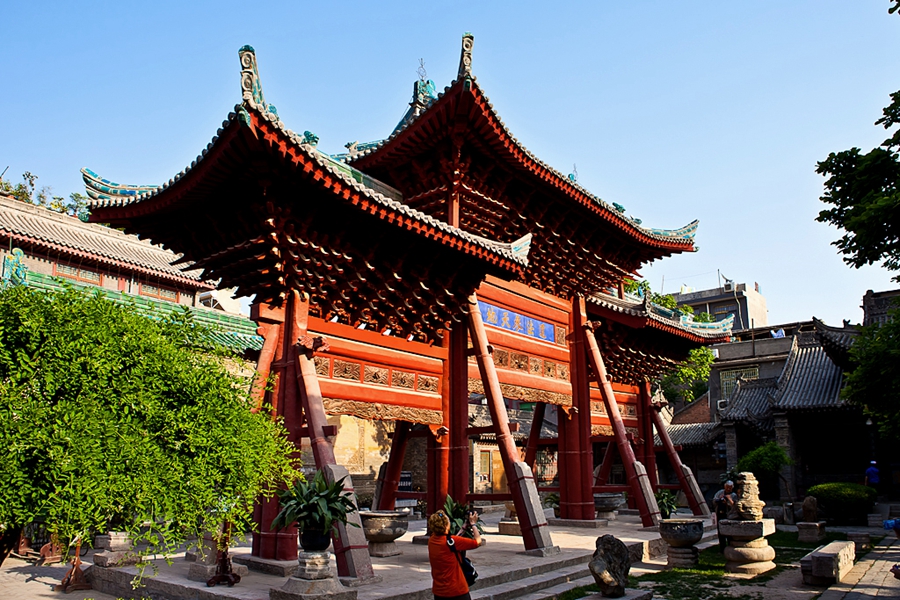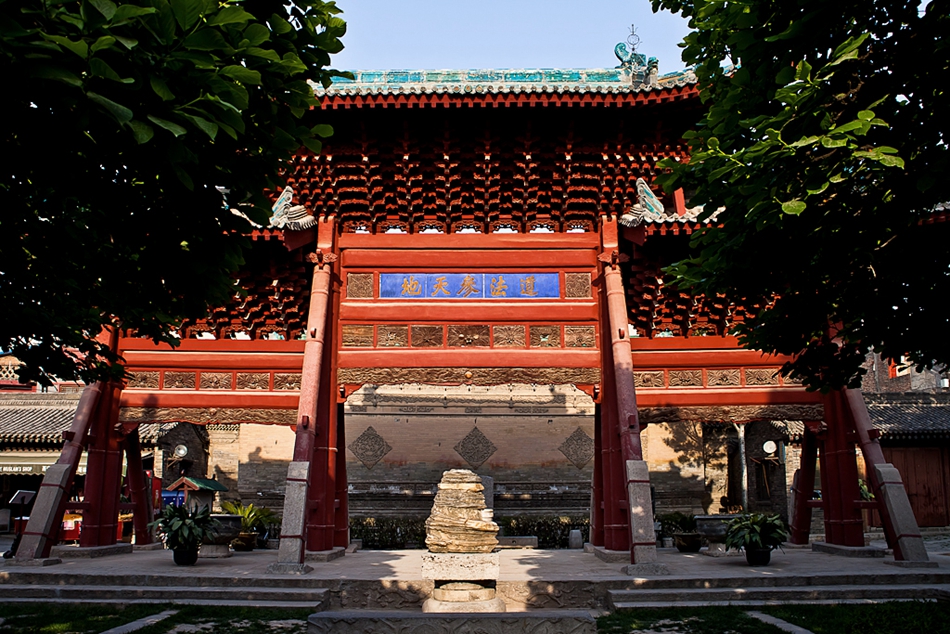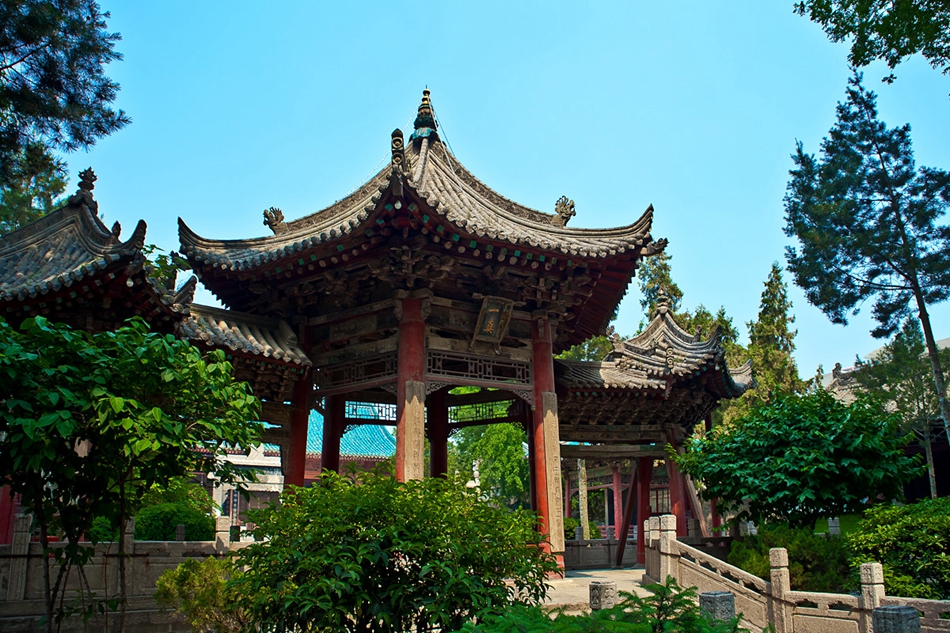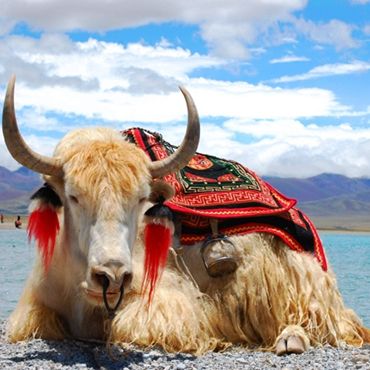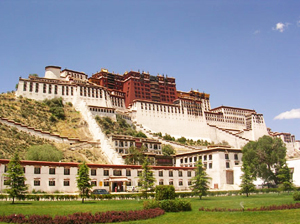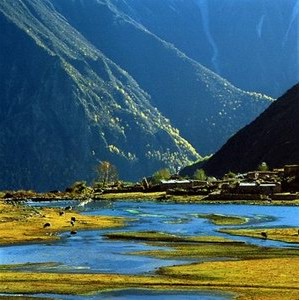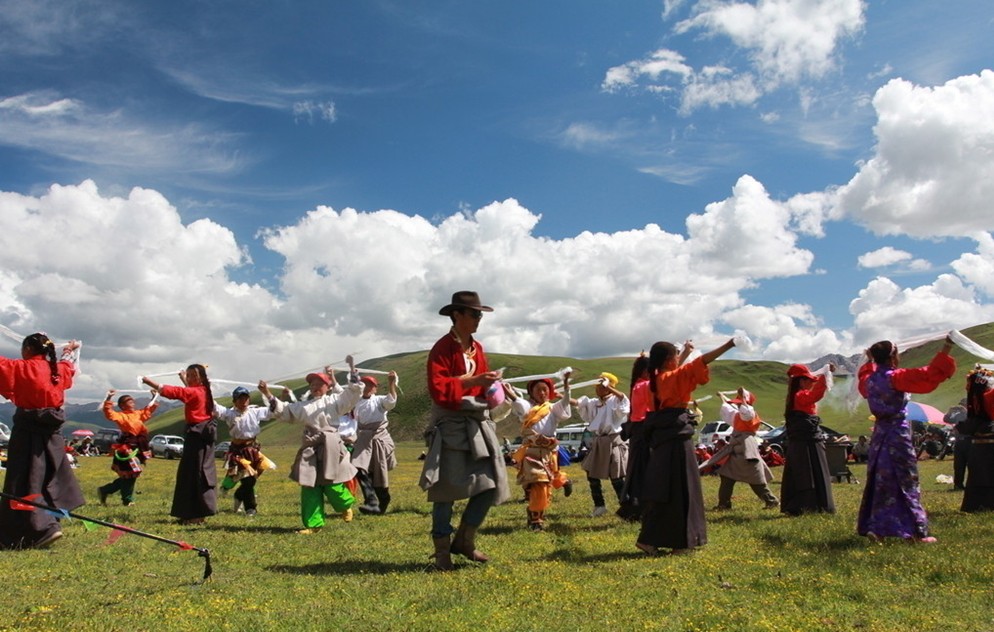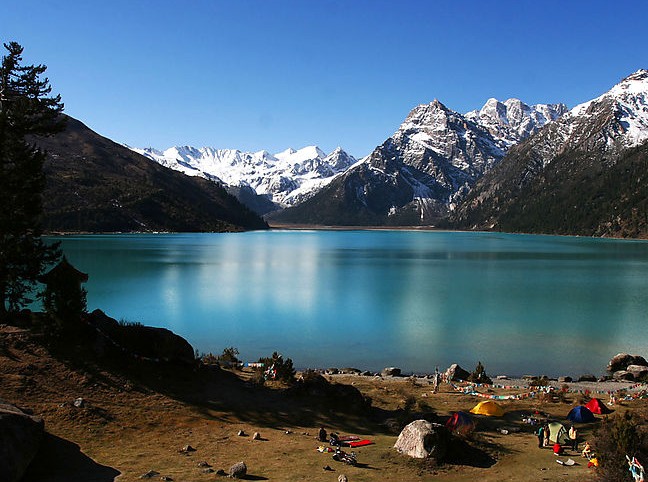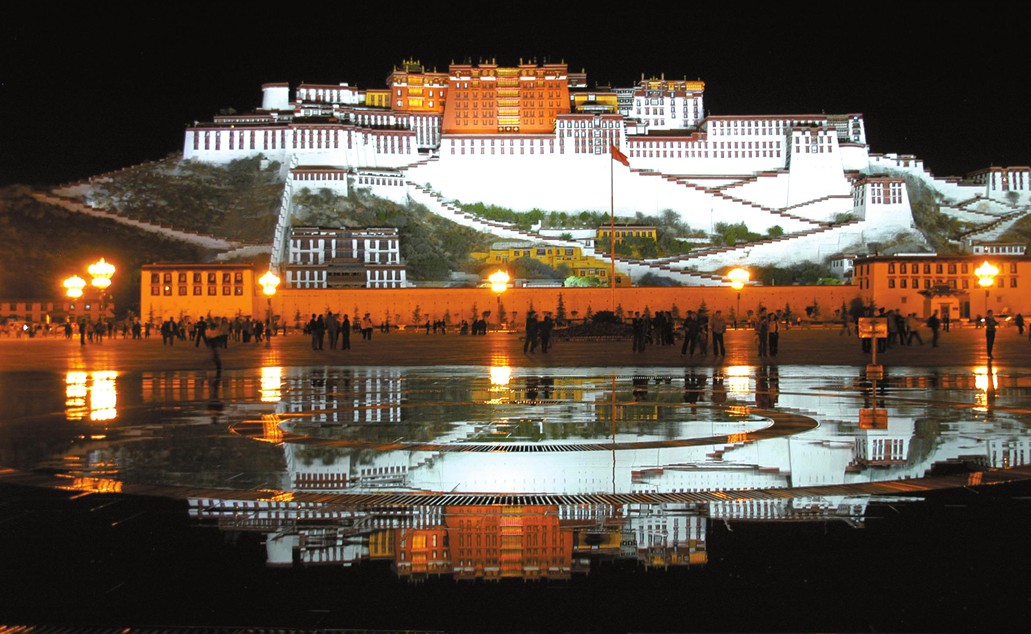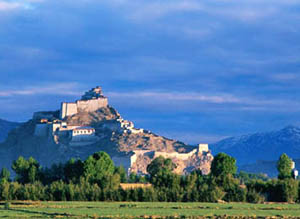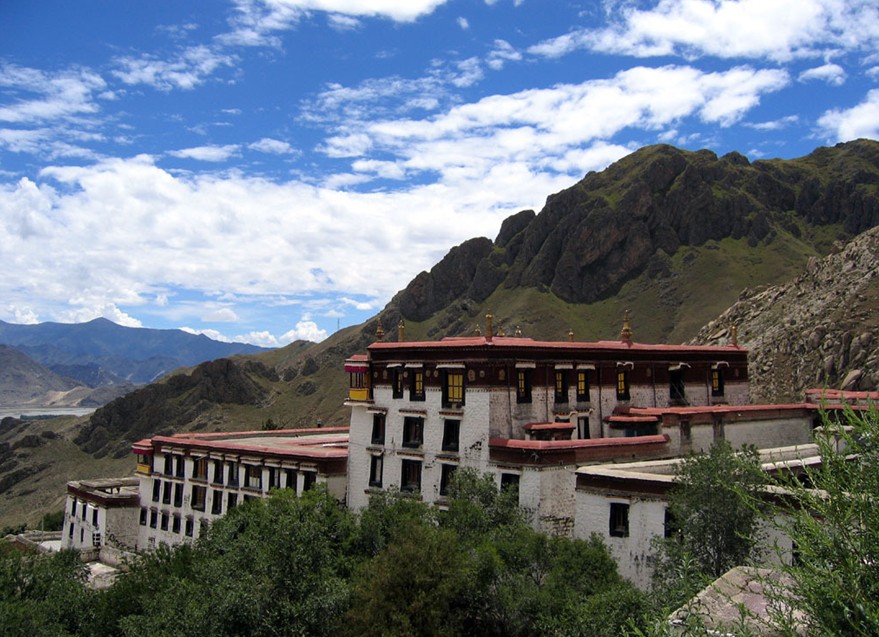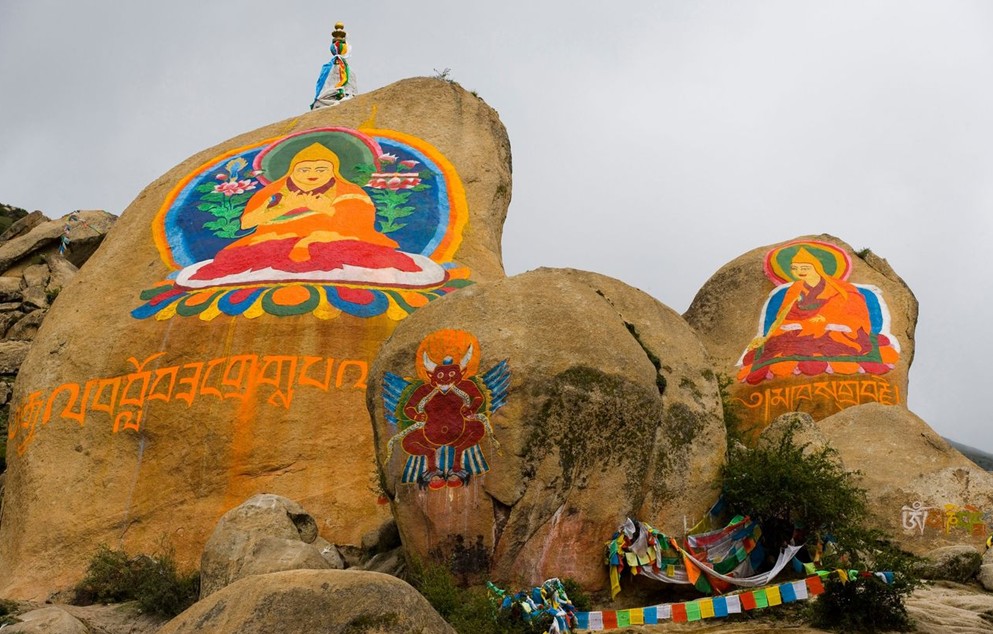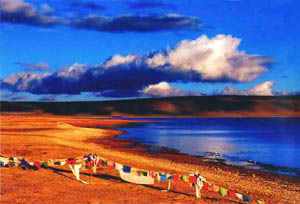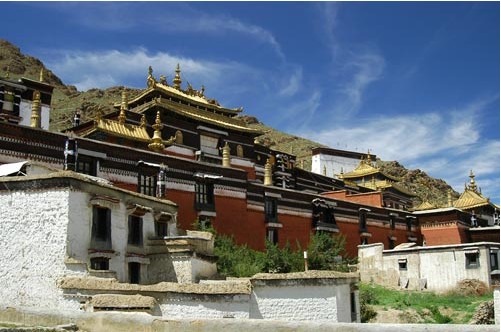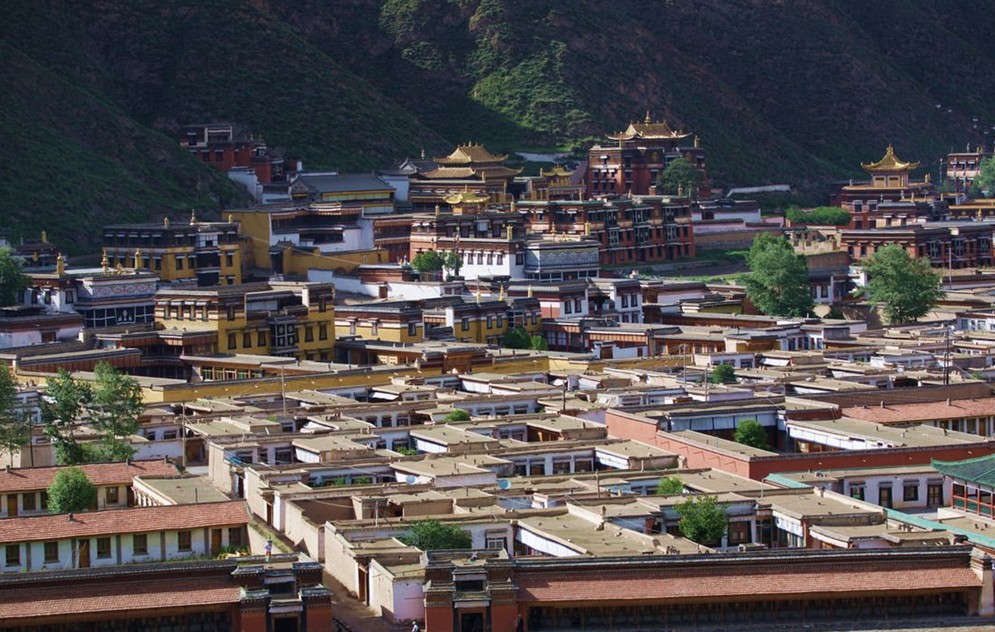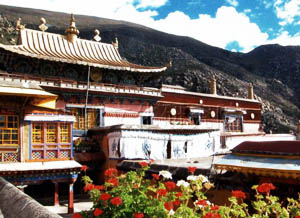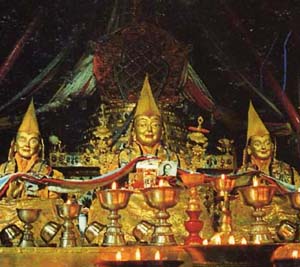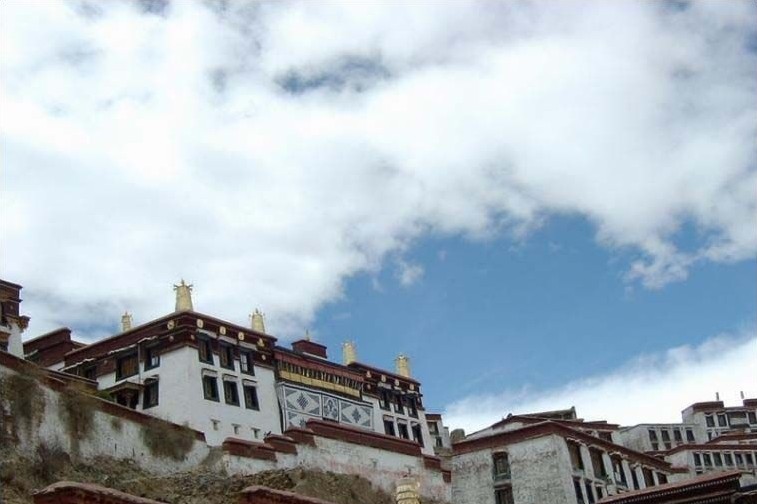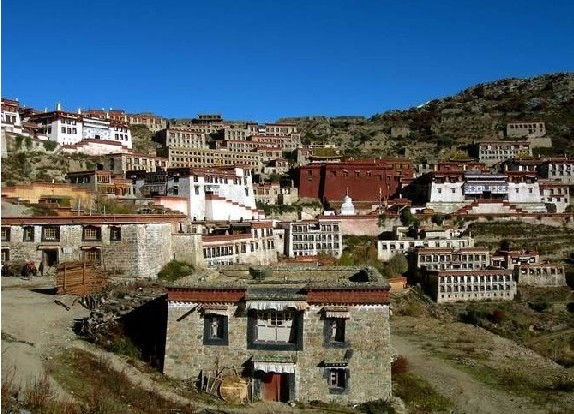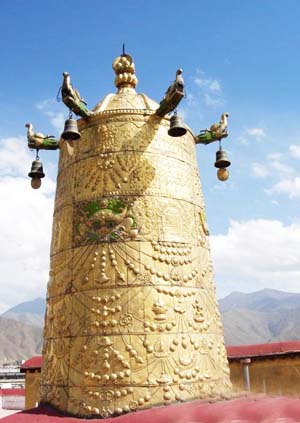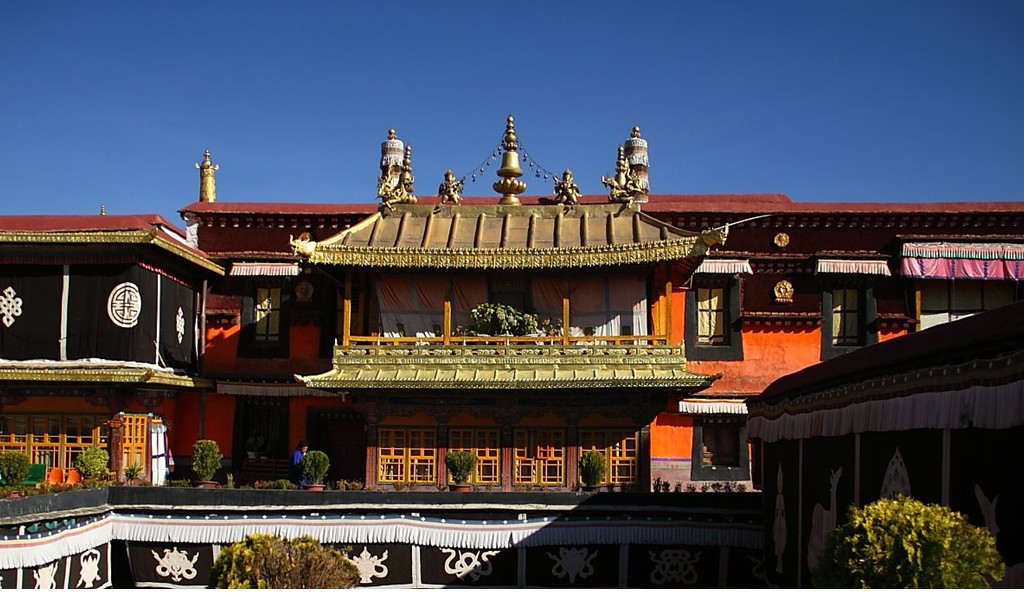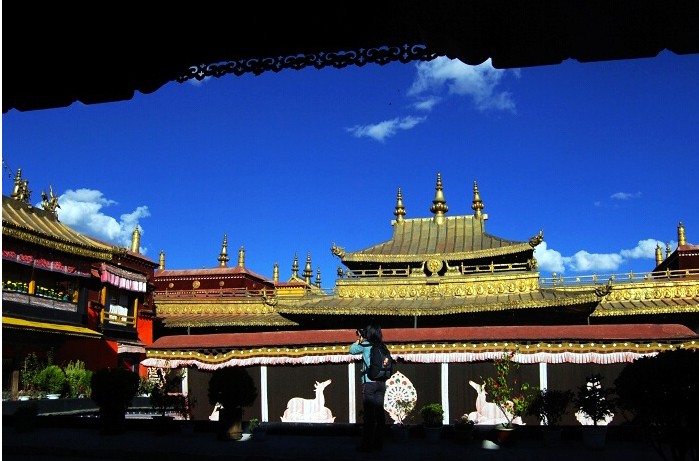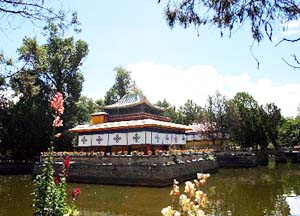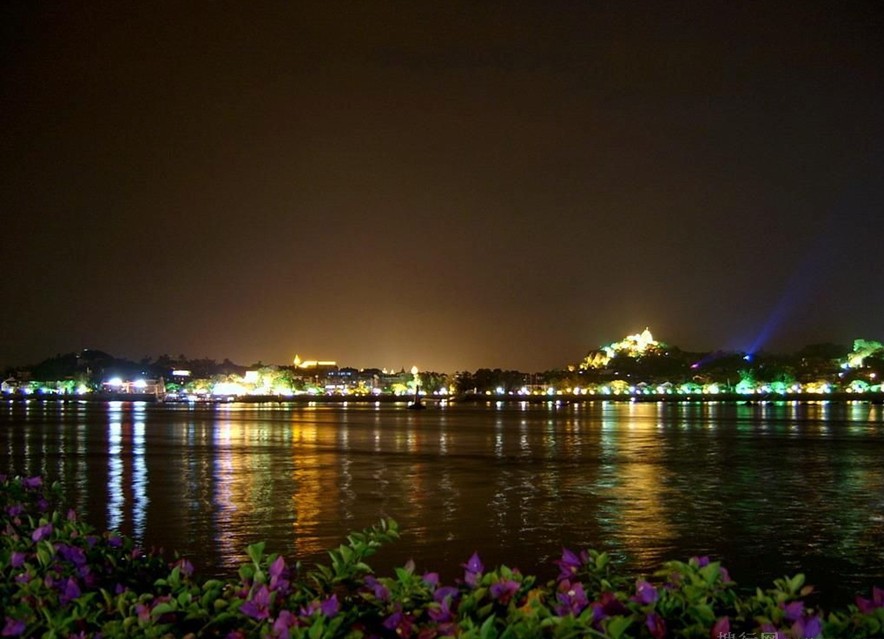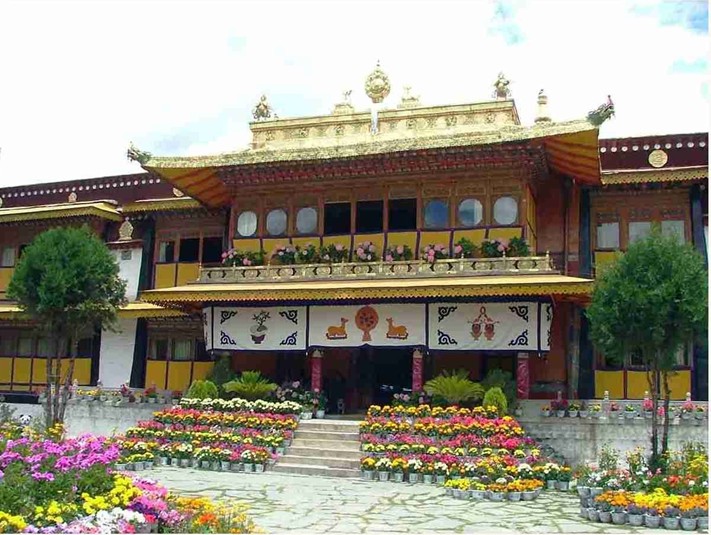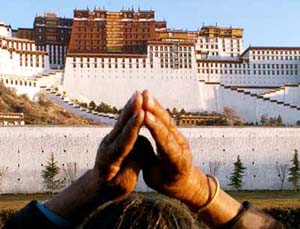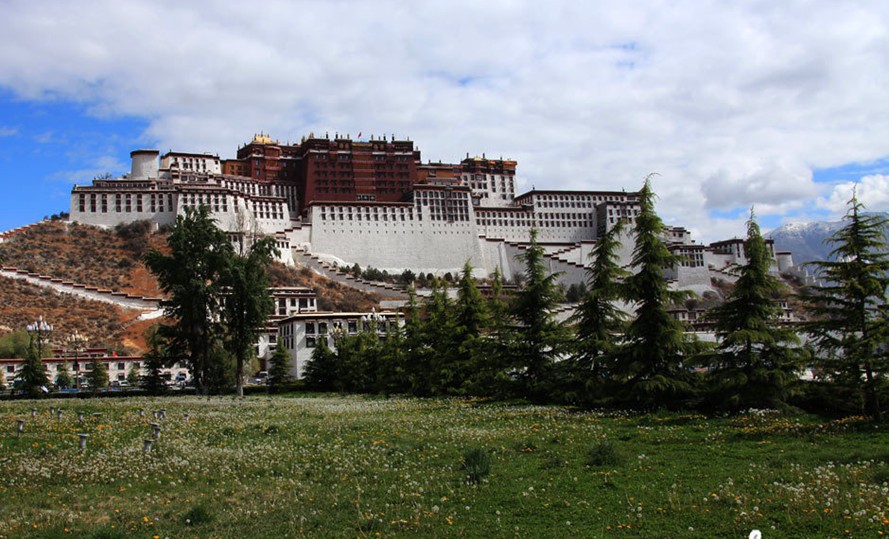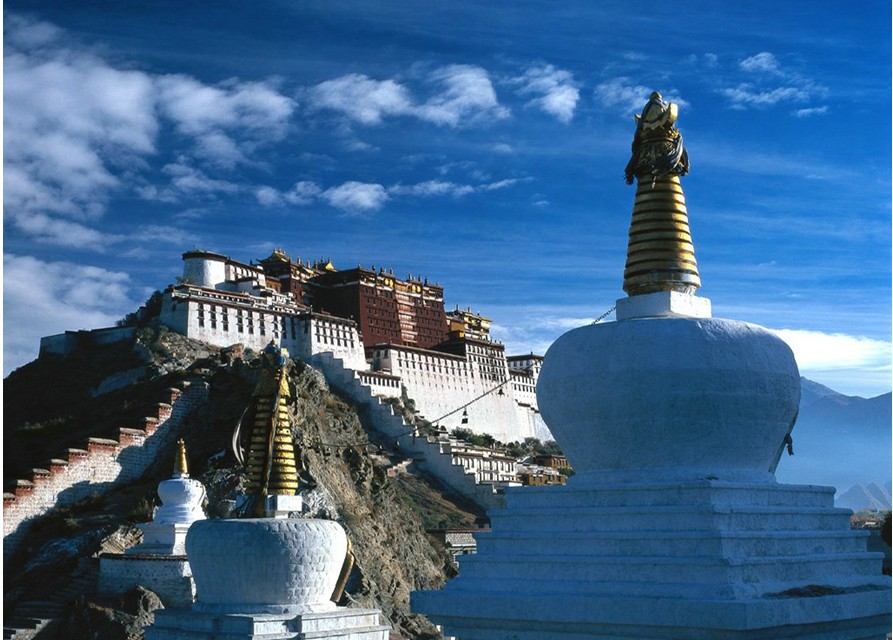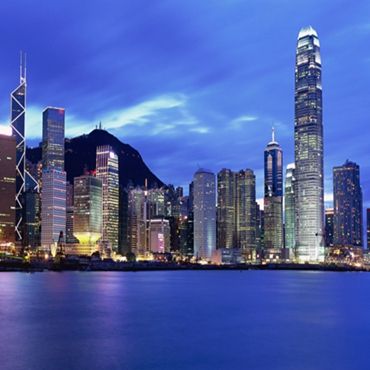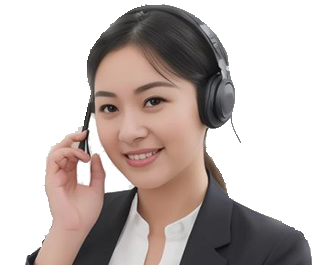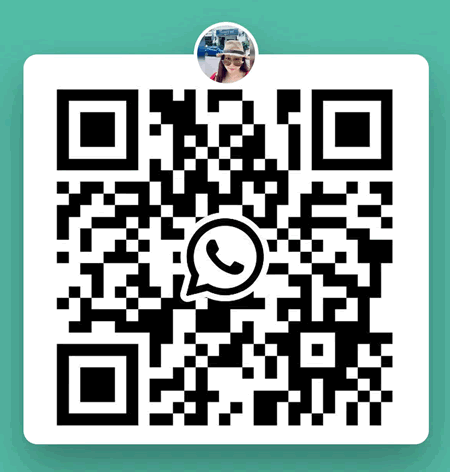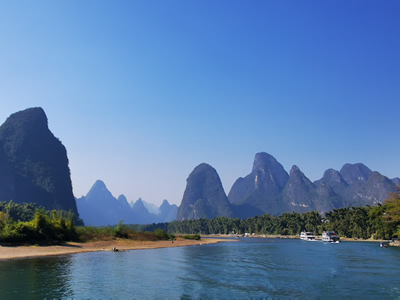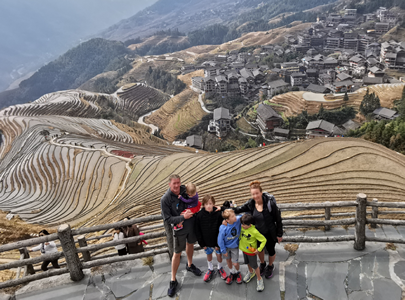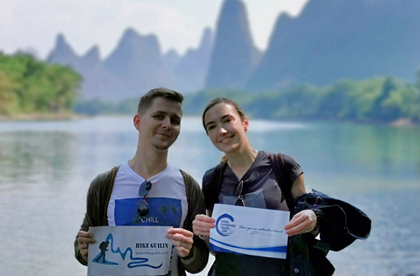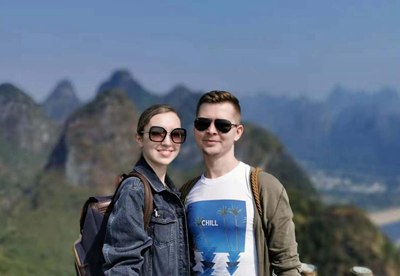Highlights
This trekking tour offers a good chance to get a close look at the Tibetan herders and their nomadic lifestyles. The trek exceeds 4400m in average with a maximum elevation at 5300m. It nicely balances cultural and wilderness activities and available in Mid April-Mid Oct.
Hiking Duration: about 4-6 Hrs per day, 4 days total
Hiking Distance: about 6.8 Km-15 Km (9.3 Miles) per day, 4 days total
Hiking Starting Point: Tsurphu
Hiking End Point: Yangpancheng
Tour Type: Private and Guided
Meals: Picnicking meals for the trekking part
Itinerary
Fly from Hong Kong to Xi'an. You will be picked up at airport and transferred to your hotel.
Stay overnight in Xi'an.
Meals included: Breakfast , Lunch
In the morning go to the railway station to get the train heading for Lhasa.
Stay overnight on the train (hard sleepers).
Meals included: Breakfast , Lunch
Arrive in Lhasa in the afternoon or evening. Our local guide will welcome you in the train station and then we transfer you to the hotel in Lhasa It is better to acclimatize yourself to the high altitude as soon as possible.
Stay overnight in Lhasa.
Meals included: Breakfast , Lunch
Visit the renowned [Potala Palace], [Jokhang Temple], [Barkhor Street] and a [local Tibetan family]. The rest time of the day will be free on your own.
Stay overnight in Lhasa.
Meals included: Breakfast , Lunch
Filling with the fresh morning air, we'll drive from Lhasa to [Tsurphu Monastery] for about 2hrs. After arrival, you may visit the monastery and be prepare for next few days trekking tour.
Stay overnight in tent.
Meals included: Breakfast , Lunch
After breakfast, start the first-day trek up a green valley to Leten. On the way, you could pass through various species of mountain goats and some small nomadic community camps for summer herding, and sometimes, you may stop into the herder's tent for a cup of salt butter tea or fresh yak milk, which would be unfamiliar to you. Most important is that the classic beauty of Tibet will be with you for the entire trek tour.
Stay overnight in tent.
Meals included: Breakfast , Lunch
Climb over the Damchen Nyingtri pass and descend into a beautiful valley. After three hours, you'll pass the Lasar La to the Yangpancheng valley, followed is Bartso, a drokpa village with several houses. Today's view is also breathtaking with streams, wide open plateaus, powder-blue sky, etc.
Stay overnight in tent.
Meals included: Breakfast , Lunch
Follow a wide trail across the valley to another ridge, from where you'll be rewarded with views of Mt. Nyianchengtangula (over 7000m). After pass the Tajung village, you may see some young nomadic boys and girls having a picnic on the plateaus while watching their yaks and sheep graze. In the afternoon, we will set up camp near the small Dorje Ling Nunnery.
Stay overnight in tent.
Meals included: Breakfast , Lunch
Leaving Dorje Ling Nunnery behind, you'll have easy trek along the Nyango Chu River through the grassy valley to Yangpancheng Gompa. Our Land cruiser will be waiting for you at the monastery and guide you to the [hot spring]. After that, drive to the beautiful [Namtso Lake], the biggest highland lake in Tibet.
Stay overnight in tent.
Meals included: Breakfast , Lunch
Meals included: Breakfast , Lunch
There will be a private drive taking you to the airport for your homeward flight. Your wonderful Tibet tour ends.
Meals included: Breakfast
Pricing & Accommodation
-
 US Dollar
US Dollar -
 Euro
Euro -
 GB Pound
GB Pound -
 CA Dollar
CA Dollar -
 AU Dollar
AU Dollar -
 HK Dollars
HK Dollars -
 Renminbi
Renminbi
| 1 person | 2-5 persons | 6-9 persons | ≥10 persons | Single Room Supplement | |
| First Class Tour | $3551 | $3025 | $2596 | $2099 | $790 |
| Comfortable Tour | $3228 | $2784 | $2260 | $1877 | $460 |
| Standard Tour | $2730 | $2203 | $1837 | $1608 | $295 |
* Price in every box above is for each person.
* The default currency is in US dollar. Please use the Currency Converter to see the equivalent quote in your currency. Price is for references only, it may vary according to your actual travel itinerary, travel time, hotel price rise or fall, US dollar exchange rate fluctuation, car fuel price change and government tax adjustment, etc..
* The price is only for your reference and it is subject to seasons, high or low.Please send us your inquiry if you are interested.
* The differences between First Class Tour, Comfortable Tour and Standard Tour are mainly reflected in the hotels we use. For First Class Tour, we use mostly 5 star hotels (or hotels corresponded to 5 star ones), 4 star hotels for Comfortable Tour and 3 star hotels for Standard Tour. But there’re exceptions when there come home stay experience, remote destinations and other specified circumstances in the itinerary.
Inclusions / Exclusions
Inclusions:
- Attraction Entrance Fees
- Centrally Located Hotels
- Authentic Chinese Food
- Private Experienced Guides
- Private Cars/Van with Drivers
- Internal Flights/Train(s) in China
- Luggage Transfers
- Airport Taxes and Fuel Fees
- Service Charge & Government Taxes
- Travel Insurance
Exclusions:
- International Airfare to Enter/Leave China
- China Entry Visa Fees
- Excess Baggage Charges
- Personal Expenses
- Single Room Supplement
- Tips or Gifts to Guides/Drivers/Bellmen
Important Information
How to Dress (only for reference):
Sturdy walking shoes/Sport sandals
Long, loose and comfortable pants
Shirts/T-shirts
Warm enough clothes
Fleece, Jacket, hat and gloves
Umbrella or waterproof jacket in a cloudy day or rainy day
Cover for backpack or plastic bags to keep clothes dry in case of rain
What to Bring (only for reference):
Wet wipes / Moist towelettes
Sun hat, Sun block, Sunglasses (very important in Tibet)
Insect Repellent
Bottled Water
Small towel
Camera, film and memory card, battery
Binoculars
Pocketknife
First-aid kit (should contain lip salve, Aspirin, Band Aids, anti-histamine, Imodium or similar tablets for mild cases of diarrhea, re-hydration powder, extra prescription drugs you may be taking).
Local Dress
Generally speaking, the dress standard is more conservative in China than it is in western countries. Things also changes quickly, nowadays the young Chinese share the same hobbies with their western counterparts. When packing try to pick loose, lightweight, long clothing that will keep you cool in the usually hot and humid climate of summers. In predominately Buddhist and Muslim regions we ask that you dress respectfully and avoid very short shorts/skirts and singlets/tanktops when visiting temples or mosques or other holy sites.
Spending Money
Every traveller is different and therefore spending money requirements will vary. Some travellers may drink more than others while other travellers like to purchase more souvenirs than most. Please consider your own spending habits when it comes to allowing for drinks, shopping and tipping. Please also remember the following specific recommendations when planning your trip.
Money Exchange
As currency exchange rates in Asia fluctuate often we ask that you refer to internet for the recent exchange rates. There are many ATM machines that accept both Visa and MasterCard and other credit cards in most Chinese cities. We also recommend the use of cash and travelers checks in USD currency. Major credit cards are accepted in big shops but they may charge a 2-4% transaction fee. For the small shops and the street venders, they take cash (either Chinese Yuan or US dollar) only.
Emergency Fund
Please also make sure you have access to at least an additional USD200 (or equivalent) as an "emergency" fund, to be used when circumstances outside our control, necessitate a change to our planned route. This is a rare occurrence!
Tipping
It is customary to tip service providers in travel industry in Asia, at approximately 10%, depending on the service. Tipping is expected - though not compulsory - and shows an expression of satisfaction with the people who have assisted you on your tour. Although it may not be customary to you, it is of considerable significance to the people who will take care of you during your travels. Recommendations for tipping local guides would range from $3-$5 USD per person per day depending on the quality and length of the service, for driver, it could be half. If necessary, ask your tour leader or call your CET tour advisor for specific recommendations based on the circumstances. If you have a tour leader for the whole tour, at the end of the trip if you felt he/she did an outstanding job, tipping is appreciated. The amount is entirely a personal preference, however as a guideline $3-5 USD per person, per day can be used.
Local Flights
All local flights are included in the cost of your tour unless otherwise noted. It is important that we have your passport information at the time of booking in order to process these tickets. Internal flight tickets are all e-tickets. They are issued locally and you will be given the information of them prior to the flight departure.
Safety and Security
We strongly recommend the use of a neck wallet or money belt while travelling, for the safe keeping of your passport, air tickets, travelers' checks, cash and other valuable items. Many of the hotels we cooperate with have safety deposit boxes which are the most secure way of storing your valuables. A lock is recommended for securing your luggage.
Many national governments provide a regularly updated advice service on safety issues involved with international travel. We recommend that you check your government's advice for their latest travel information before departure. When travelling on a trip, please note that your group leader or local guides has the authority to amend or cancel any part of the trip itinerary if it is deemed necessary due to safety concerns. Your leader or local guides will accompany you on all included activities. During your trip you will have some free time to pursue your own interests, relax and take it easy or explore at your leisure. While your group leader or local guides will assist you with options available in a given location please note that any optional activities you undertake are not part of your itinerary, and we offer no representations about the safety of the activity or the standard of the operators running them. Please use your own good judgment when selecting an activity in your free time.
A Couple of Rules
Illegal drugs will not be tolerated on any trips. Possessing or using drugs not only contravenes the laws of China but also puts the rest of the group at risk. Smoking marijuana and opium is not acceptable for CET travellers. Our philosophy of travel is one of respect towards everyone we encounter, and in particular the local people who make the world the special place it is. Use of illegal drugs is completely contrary to this philosophy and local law. Our group leader or local guides has the right to expel any member of the group if drugs are found in their possession or used.
Health
You should consult your doctor for up-to-date medical travel information well before departure. We recommend that you carry a First Aid kit as well as any personal medical requirements. Please be aware that sometimes we are in remote areas and away from medical facilities, and for legal reasons our leaders or local guides are prohibited from administering any type of drug including headache tablets, antibiotics, etc. In China pharmacies tend to stock the same western drugs as you get at home but they are usually produced locally so please bring the full drug name with you when trying to purchase a prescription drug. When selecting a tour please carefully read the itinerary and assess your ability to cope with our style of travel. Please refer to the Physical and Culture Shock ratings in this dossier for trip specific information. For travelers over 70 years a completed Medical Form is required. CET reserves the right to exclude any traveler from all or part of a trip without refund if in the reasonable opinion of our group leader or local guides they are unable to complete the itinerary without undue risk to themselves and/or the rest of the group.
Mountain Sickness
What the visitors to Tibet are concerned about is the mountain sickness. On highland, the air is thin and the air contains less oxygen. If the elevation increases quickly, you will find uncomfortable, such as taking airplanes or buses to Tibet. With mountain sickness, you will feel headache, dizzy, heavy breathing, tired and insomnia. Those with heart diseases or high blood pressure should be more careful.
Buying a Bottle of Oxygen in Case
Lack of oxygen is the main reason for mountain sickness. In many places in Tibet you can buy oxygen in bottles. You can buy one or two bottles in case. With an oxygen-taking mask, they cost 20 Yuan.
Medical Form
It is very important you are aware that, as a minimum, an "average level of fitness and mobility" is required to undertake our easiest programs. Travelers must be able to walk without the aid of another person, climb 3-4 flights of stairs, step on and off small boats, and carry their own bags at a minimum. Travelers over the age of 70, or travelers with a pre-existing medical condition, are required to complete a short medical questionnaire, which must be signed by their physician. This is to ensure that senior travelers have the necessary fitness and mobility to comfortably complete their chosen trip. While our leaders or local guides work hard to ensure that all our travelers are catered for equally, it is not their responsibility to help individuals who cannot complete the day's activities unaided.
Travel Insurance
Travel insurance is compulsory in order to participate on any of our trips. You must have comprehensive travel insurance that covers you for medical costs associated with hospitalization, emergency travel and repatriation back to your home country. Please take your insurance policy with you when you travel. You may take other cover, of course, but we require you to be adequately insured before we can allow you to participate in our programs. Your CET leader or local guides will need to see and record your policy details at the pre-tour briefing at the starting city, so please bring a copy along to the meeting. If you arrive without travel insurance your tour leader or local guide will require you to purchase a policy before you continue your journey with us.
If you are covered by a policy arranged through your credit card company you will be asked to provide evidence of this cover, as well as a 24-hour emergency contact number. Many credit card companies do not provide an insurance policy number. In this instance, the tour leader or local guides will need to record your credit card number, as this is required to activate any request for emergency assistance. You should also bring along the travel insurance information booklet provided by your credit card company. It is your responsibility to ensure that you meet the requirements set out by your credit card company in order to be effectively covered and that the cover offered is of a suitable standard.
Passport & Visas
Well before travelling, please ensure that you have a current passport, with an accurate photo, that is valid for at least six months after your scheduled return home. Also check that your airline tickets are in exactly the same name as your passport.
Please note that visas for China and Hong Kong are the responsibility of the individual traveler. The visa requirements for your trip vary depending on where you are from and where you are going. Americans, British, Canadians, Australians and New Zealanders do currently require a visa for China. For all other nationalities please reconfirm your visa requirements with your government. For the most up to date information please check your governments' foreign ministry website. It is important that you check for yourself. For most travelers there will probably have an embassy and consulate in the country that you live in. Please note if you are travelling from China, into Hong Kong then back into China, you will need a double entry Chinese visa. Note that on some occasions people transiting through China on way to Hong Kong have been made to go through immigration and had their single entry visa stamped making this invalid. Do not allow your visa to be stamped if you are only going through transit.
Tibet Permit
Tibet permit is necessary and issued to every foreign traveler (except for the diplomats, journalists, government officials) who want to travel in Tibet. It includes three kinds, Tibet Entry Permit (TTB), Tibet Travel Permit (PSB) and Military Permit.
TTB permit, issued by Tibet Tourism Bureau, is indispensable when each foreign visitor flies or takes a train from any city to Lhasa. Besides it is also needed when you buy a flight or train ticket. Moreover, when groups traveling by Land Cruiser, TTB permits are necessary and travel groups can only be arranged by travel agencies.
PSB permit, issued by People’s Security Bureau, is essential when you want to go further to the ‘unopened’ areas in Tibet. It only can be arranged after you arrive in Lhasa because it needs your original passport and China visa.
A short list of unopened areas up to now
(1) Shannan: Samye Monastery, Tomb of Tibetan King, Trandruk Monastery, Yumbulakhang
(2) Shigatse: Sakya Monastery, the Mt. Everest, Rongpu Monastery
(3) Gyangtse: Pelkor Chode Monastery & Kubum Stupa
(4) Ngari Region: Mt. Kailash, Manasarovar Lake, Tsaparang, Ali, etc.
(5) Linzhi Region: Basongcuo, Bomi, Rawotso, etc.
(6) Changdu Region: Changdu, Riwoche, Tengchen, etc.
Military Permit, issued by military affairs office, is indispensable when you travel to ‘unopened areas’, such as some villages and towns in Shigatse, Shannan, Linzhi, Ali, Zhada and Chayu, etc.
Please contact us to get the specific information about how to apply for these permits. It is recommended that please get ready for the related permits before your journey as early as possible.
Keeping in Touch
If you need to be contacted while travelling we recommend that you set up an email address that can be accessed on the road, rather than relying on postal mail. Email cafes are becoming increasingly commonplace and cheap throughout the country, and have quickly become the preferred way for our leaders and travelers to stay in touch. If someone wishes to contact you in an emergency while you are on one of our trips we recommend that they contact us so we can get into touch with your tour leader or local guide quickly by their cell phone and they can pass their cell phone to you! We recommend that family and friends don't try to contact you through phoning hotels en route, as our hotels are subject to change.
Feedback
After your travels, we want to hear from you! Your feedback information is so important to us and we'll record you and give you CET travel points so you can use the points to get discount for your next CET trip or your friends' CET tours.

